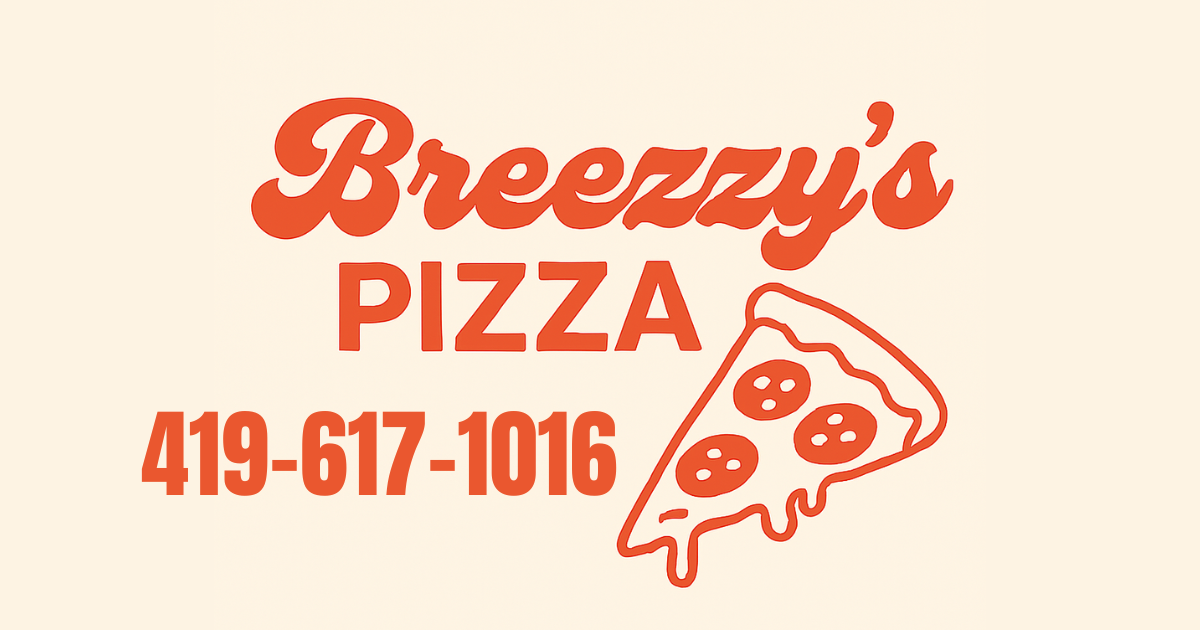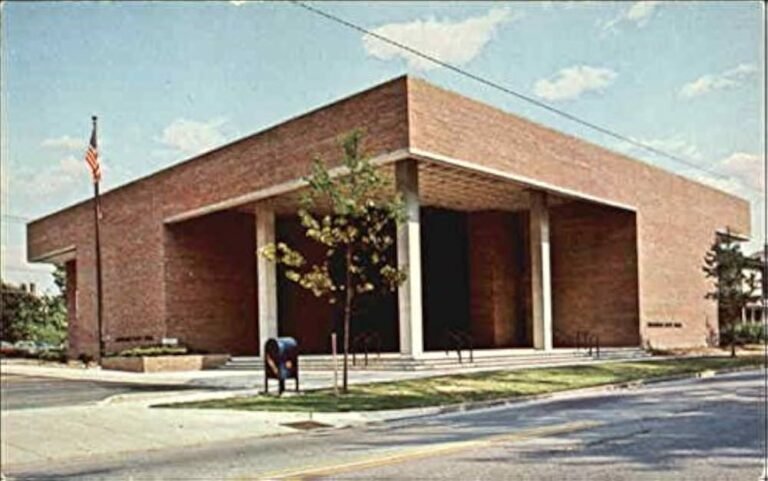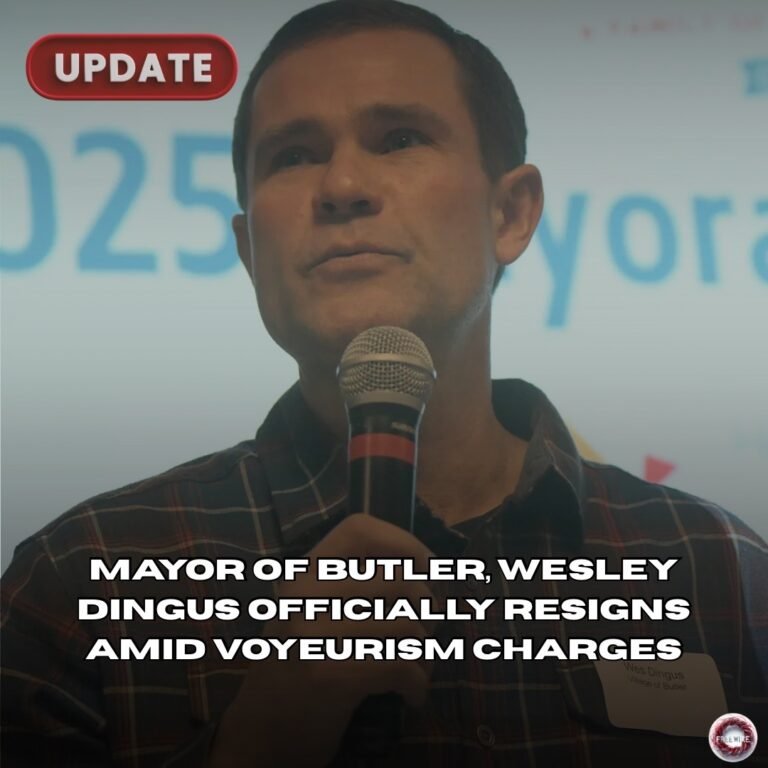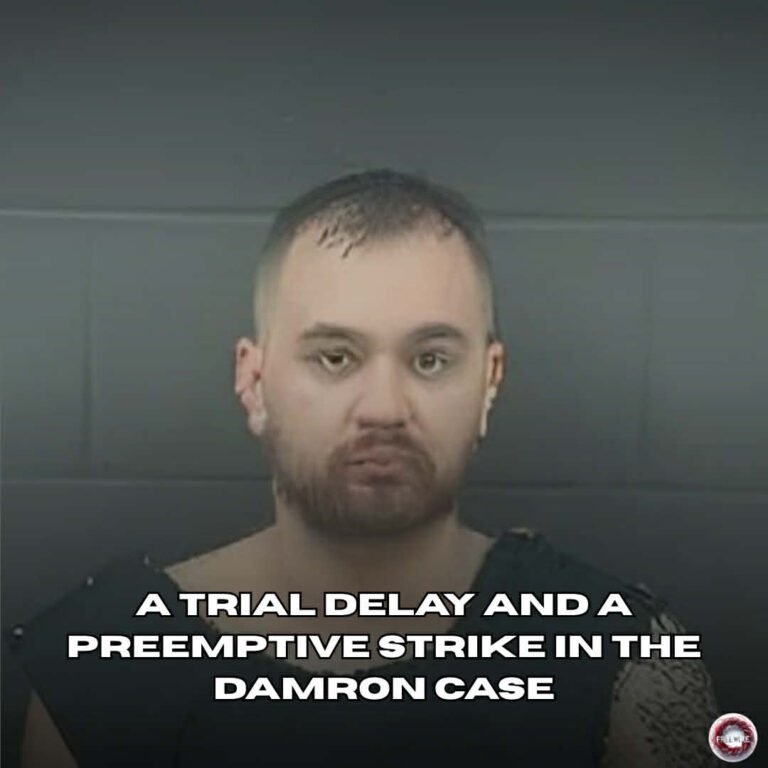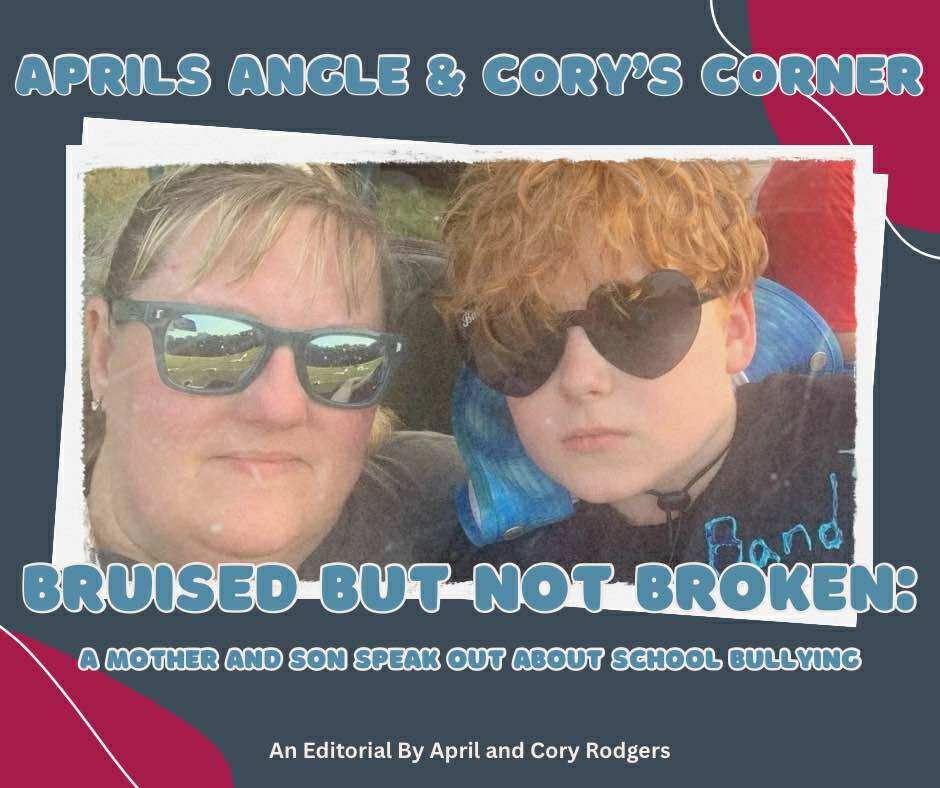
By April Rodgers and Cory Rodgers | FreeWire — Your News, Your Voice
This week, April’s Angle looks a little different—and for good reason. I’ve invited my son, Cory, to share something deeply personal, raw, and important. His experience with bullying, an eating disorder, and the silence that so often surrounds both is something no child should go through—but too many do. Together, we’ve written this piece in the hope that speaking out will encourage understanding, action, and compassion. It’s not easy to be this open, but staying silent was no longer an option.
Cory’s Story: What I went through, and why I couldn’t stay silent anymore.
The bullying started halfway through eighth grade, around the time I began gaining weight. It began with words—classmates calling me chubby, ugly, and short. I told nobody. I suffered in silence.
I came up with the idea that if I stopped eating, I couldn’t keep gaining weight. That’s when the eating disorder started. In the last month of school, it became too much. The weight of it all took a toll. I stopped enjoying the things I used to love. I slipped into depression.
Eventually, I told my mom someone at school was bullying me. She tried to help—she went to the school. But by then, the eating disorder had taken hold. I was barely eating, yet somehow still gaining weight. It wasn’t until later that we learned there was a medical explanation. But back then, all anyone saw was my appearance. And the bullying didn’t stop.
Even when school let out for the summer, I couldn’t escape it. That summer, our family went on vacation to Gettysburg, Washington D.C., and Virginia Beach. I had looked forward to eating fresh seafood at a restaurant on the beach. But when we got there, all I could think about was school and the name the kids had called me: “Fat.” I couldn’t enjoy the moment. I didn’t even want to eat. I was hundreds of miles away from those kids, but their voices were still in my head.
When we got home, I started medication and counseling. It took months before I started feeling like myself again and recovered from the eating disorder. But then high school started.
There, it didn’t stay verbal. It turned physical. Some students began pinching my chest in the hallways and during class. If I were a girl, it might have been called what it really was: sexual assault. But because I wasn’t, it was brushed off.
At the same time, I was seeing an endocrinologist at Nationwide Children’s Hospital to figure out why I was so short and still gaining weight. After months of testing, I was diagnosed with a human growth hormone deficiency. That’s what was causing my height and weight issues
After one test—after all the meds they gave me—I finally broke down and told my mom everything: the relentless name-calling, the pinching, the times I was pushed out of my chair in class. The medication that day was a high dose of hormones, and it brought out all the emotions I had been holding in. That was the moment I decided I wasn’t going back to that school.
My orientation for the digital academy was the next week, and I couldn’t have been happier. But before I left, I sent an email to the high school to let them know exactly what had been going on and who was responsible.
We received a response after their “investigation.” I was told it was a “he said, she said” situation.
I did have one friend who stood up for me when he saw what was happening. He put a stop to it. My mom says he’s a hero—and she wishes there were more kids out there like him. Unfortunately, I only had one class with him.
April’s Perspective: A mother’s fight to be heard.
As a mother, nothing prepares you for the day your child breaks down and tells you he’s been quietly suffering—starving himself, enduring relentless bullying, and questioning his worth.
Cory has always been sensitive, thoughtful, and smart. What he isn’t is aggressive. He didn’t fight back or cause a scene. He tried to ignore it. When that didn’t work, he tried to change himself.
It broke my heart to realize how long he kept it all bottled up, trying to handle it on his own. The weight gain that prompted so many cruel remarks wasn’t his fault. It was a medical issue—a growth hormone deficiency that wasn’t diagnosed until just last month.
By the time we knew, the damage had already been done. His self-esteem had been chipped away piece by piece, and the school environment that should have protected him had instead enabled the torment.
When Cory was in 8th grade, I went to the school counselor first. She said she’d talk to him. She never did. I followed up with the principal, gave him the name of one of the boys involved, and was again told the counselor would reach out. Nothing happened.
The next day, Cory’s pediatrician decided it was in his best interest to stay home. He missed the last three days of school—and still, no action was taken against the bullies.
This year, now in high school, Cory didn’t tell me what was going on right away. One night, while getting ready for bed, I saw the bruises on his chest. I was furious. That’s when we started making arrangements to transfer him to GOAL Digital Academy.
The school eventually took some action when they saw an incident on video—two boys were given stay-away orders, a piece of paper, as Cory put it. They also asked if Cory was interested in going to Pioneer, as if the victim should go elsewhere for their education. But it wasn’t until after a difficult medical test, when the meds had left him vulnerable, that Cory finally let it all out. He told me everything: being pushed out of his seat, pinched, and humiliated. He gave me a list of names.
We gave that list to the school too. One of the names? The exact same student I had warned them about last year.
Their response: they “investigated,” but since it was a he-said/she-said situation, nothing more was done.
We did everything right—doctor visits, counseling, even switching schools. But what I can’t shake is how quickly people are to dismiss bullying unless it leaves visible scars. My son was starving himself. He was being touched inappropriately. He was being pushed out of chairs. What more does it take?
Somewhere along the way, schools have forgotten that mental health matters too—that the invisible wounds are often the deepest. Cory found relief in transferring to GOAL Digital Academy, where he could focus on healing and learning without fear. But he shouldn’t have had to leave his school to find safety. No child should.
Why We’re Speaking Out:
We’re sharing our story because silence protects bullies, not victims. What happened to Cory left real emotional scars—and some that you could physically see. This should never be normalized, ignored, or excused.
We hope our story helps parents trust their instincts, keep asking their children the hard questions, and let them know they are there to listen and help. We also hope other kids know they’re not alone. More than anything, we hope this pushes schools to do more than say they take bullying seriously. It’s time for them to prove it.



